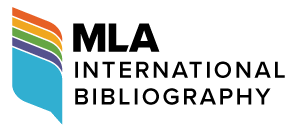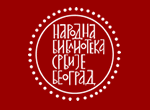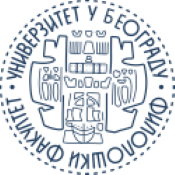Borges nuestro contemporáneo
DOI:
https://doi.org/10.18485/beoiber.2024.8.2.11Resumen
Borges es un escritor argentino ejemplar y también un gran cosmopolita que pertenece al mundo entero. Rechazó el nacionalismo de mentalidad estrecha y escribió con un espíritu libre que abarcaba el mundo sin divisiones artificiales. Michel Foucault interpretó erróneamente la "enciclopedia china" inventada por Borges como un símbolo del Otro absoluto, pero Borges nunca vio a China como una cultura ajena. La enciclopedia es una metáfora conceptual que Borges utilizó para describir el ambicioso y heroico esfuerzo humano por regular y clasificar todo el conocimiento y las cosas del mundo, aunque ese esfuerzo inevitablemente fracasa. Al igual que otros sistemas de clasificación fallidos en Occidente, esa «enciclopedia china» forma parte del valiente esfuerzo humano que Borges describió en varias de sus obras. En lugar de obsesionarse con las diferencias culturales, Borges puso énfasis en las afinidades que podrían llevar a un futuro mejor y más pacífico para la humanidad. Dada la tensión, el conflicto y las guerras regionales que vemos en nuestro mundo hoy, el consejo de Borges de centrarse en nuestras afinidades y puntos de contacto con todos los seres humanos es particularmente importante para el mundo actual.
Referencias
Borges, Jorge Luis. «The Analytical Language of John Wilkins.» Other Inquisitions, 1937-1952. Trans. Ruth Simmons. Austin: University of Texas Press, 1964a. 101-105. Print.
—. «Tlön, Uqbar, Orbis Tertius.» Labyrinths: Selected Stories & Other Writings. Eds. Donald A. Yates and James E. Irby. Trans. James E. Irby. New York: New Directions, 1964b. 3-18. Print.
—. «The Argentine Writer and Tradition.» Labyrinths: Selected Stories & Other Writings. Eds. Donald A. Yates and James E. Irby. Trans. James E. Irby. New York: New Directions, 1964c. 177-185. Print.
—. «The Wall and the Books.» Labyrinths: Selected Stories & Other Writings. Eds. Donald A. Yates and James E. Irby. Trans. James E. Irby. New York: New Directions, 1964d. 186-188. Print.
—. The Book of Sands. Trans. Norman Thomas di Giovanni. New York: E. P. Dutton, 1973a. Print.
—. Borges on Writing. Ed. di Giovanni, Daniel Halpern, and Frank MacShane. New York: E. P. Dutton, 1973b. Print.
—. «Facing the Year 1983.» Twenty-Four Conversations with Borges, Including a Selection of Poems. Trans. Nicomedes Suárez Araúz et al. Housatonic, Mass.: Lascaux Publishers, 1984. 11-16. Print.
Brook, Timothy. Vermeer’s Hat: The Seventeenth Century and the Dawn of the Global World. London: Profile Books, 2009. Print.
Díaz, Hernán. Borges, between History and Eternity. New York: Continuum, 2012. Print.
Eco, Umberto. The Search for the Perfect Language. Oxford: Wiley Blackwell, 1997. Print.
Foucault, Michel. The Order of Things: An Archaeology of the Human Sciences. New York: Vintage, 1973. Print.
Hubert, Rosario. «Sinology on the Edge: Borges’s Reviews of Chinese Literature (1937-1942).» Variaciones Borges 39 (2015): 81-101. Print.
King, John. «Editor’s Preface.» Beatriz Sarlo. Jorge Luis Borges: A Writer on the Edge. Ed. John King. London: Verso, 1993. vii-xviii. Print.
Ramsey, Rachel. «China and the Ideal of Order in John Webb’s An Historical Essay…» Journal of the History of Ideas 62.3 (July 2001): 483-503. Print.
Sarlo, Beatriz. Jorge Luis Borges: A Writer on the Edge. Ed. John King. London: Verso, 1993. Print.
Shaw, Donald L. Borges’ Narrative Strategy. Leeds: Francis Cairns, 1992. Print.
Webb, John. An Historical Essay Endeavoring a Probability That the Language Of the Empire of China is the Primitive Language. London: Printed for Nath. Brook, 1669. Print.
Zhang Longxi. «The Myth of the Other: China in the Eyes of the West.» Critical Inquiry 15.1 (Autumn 1988): 108-31. Print.
Descargas
Publicado
Número
Sección
Licencia
Derechos de autor 2024 Longxi Zhang

Esta obra está bajo una licencia internacional Creative Commons Atribución-CompartirIgual 4.0.
Aquellos autores/as que tengan publicaciones con esta revista, aceptan los términos siguientes:
- Los/las autores/as conservarán sus derechos de autor y garantizarán a la revista el derecho de primera publicación de su obra, el cuál estará simultáneamente sujeto a la Licencia de Reconocimiento-CompartirIgual 4.0 Internacional (CC BY-SA) que permite a terceros compartir la obra siempre que se indique su autor y su primera publicación en esta revista.
- Los/las autores/as podrán adoptar otros acuerdos de licencia no exclusiva de distribución de la versión de la obra publicada (p. ej.: depositarla en un archivo telemático institucional o publicarla en un volumen monográfico) siempre que se indique la publicación inicial en esta revista.
- Se permite y recomienda a los/las autores/as difundir su obra a través de Internet (p. ej.: en archivos telemáticos institucionales o en su página web) antes y durante el proceso de envío, lo cual puede producir intercambios interesantes y aumentar las citas de la obra publicada. (Véase El efecto del acceso abierto).















